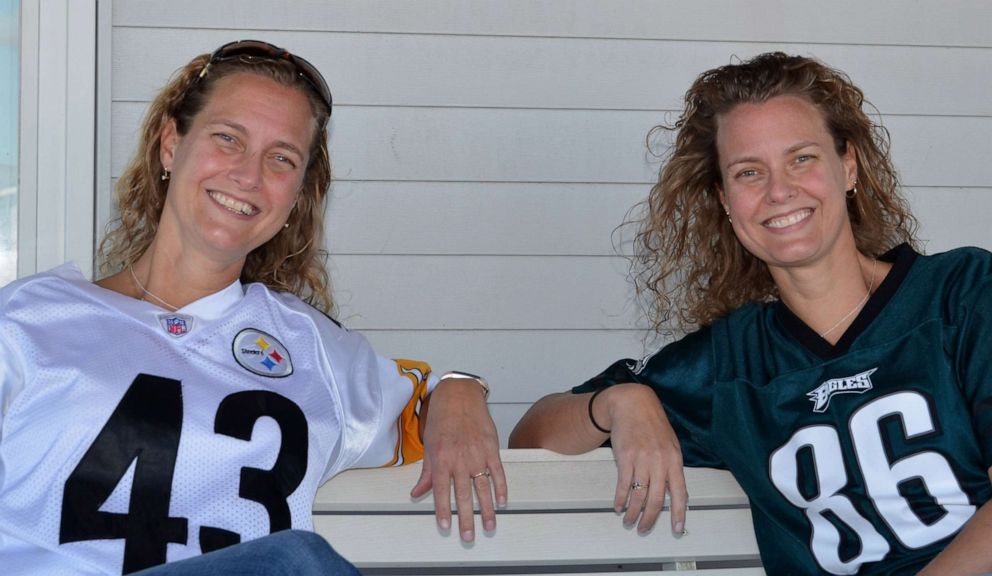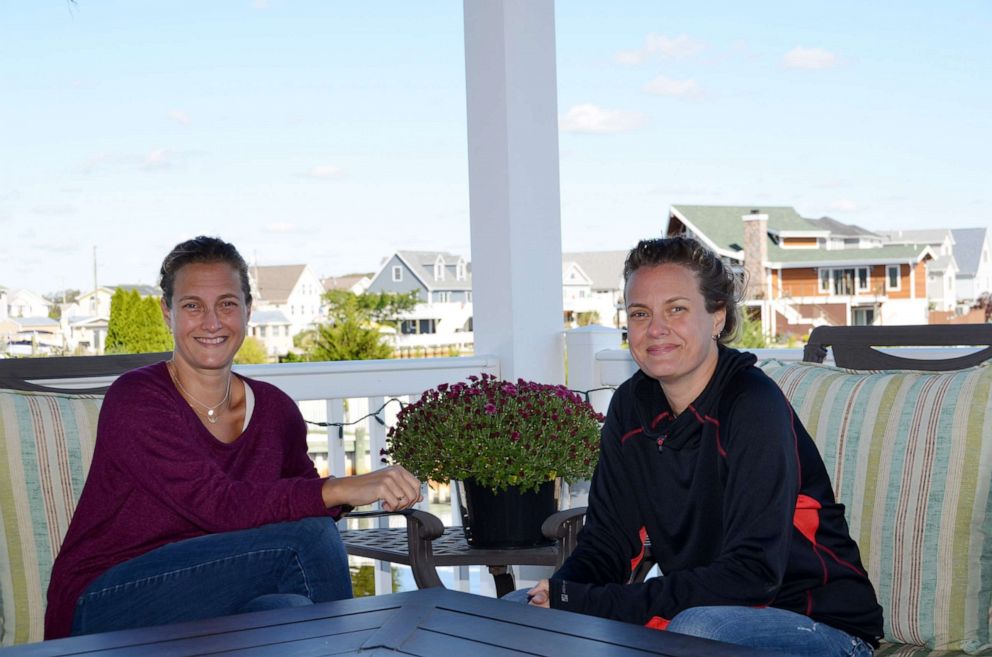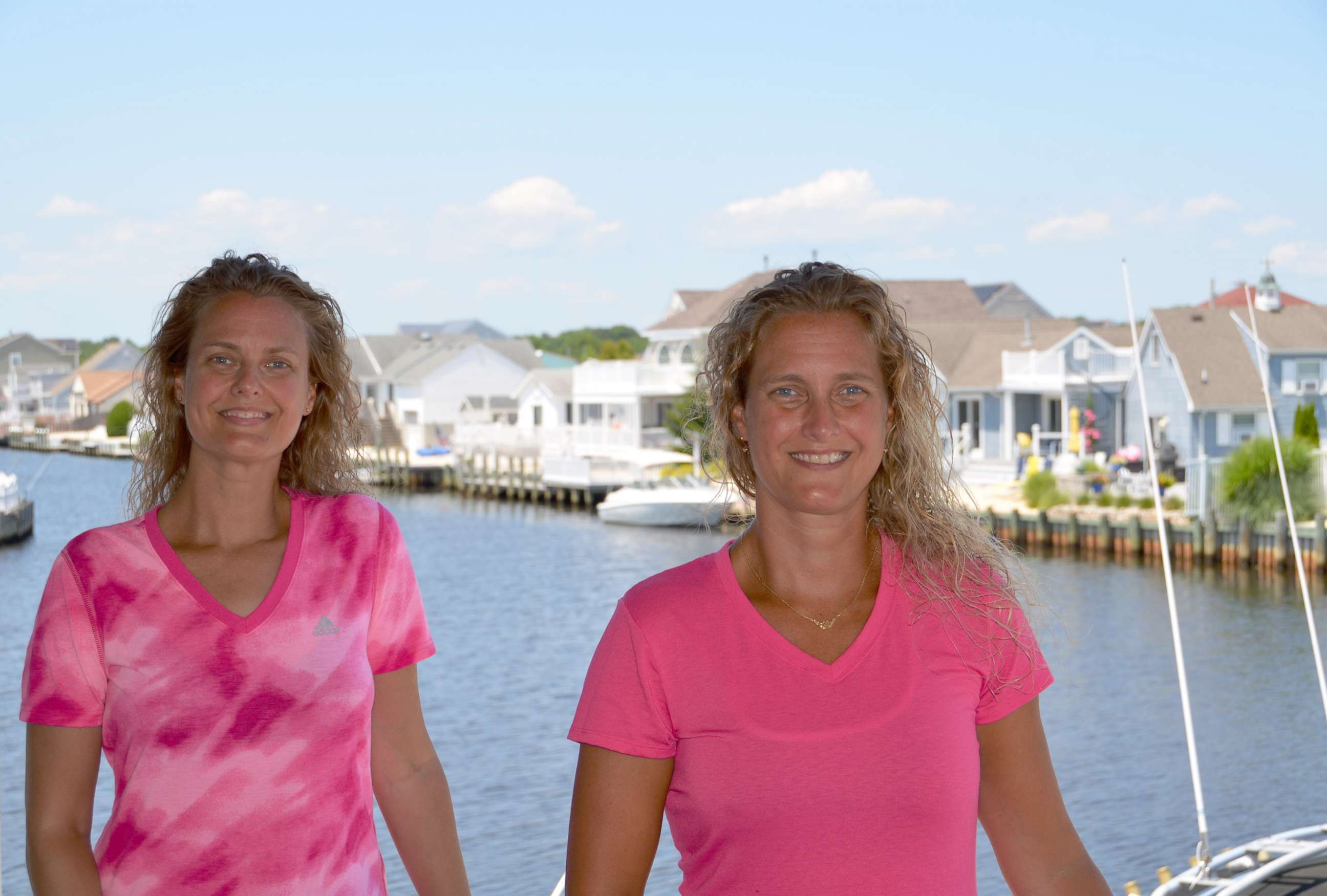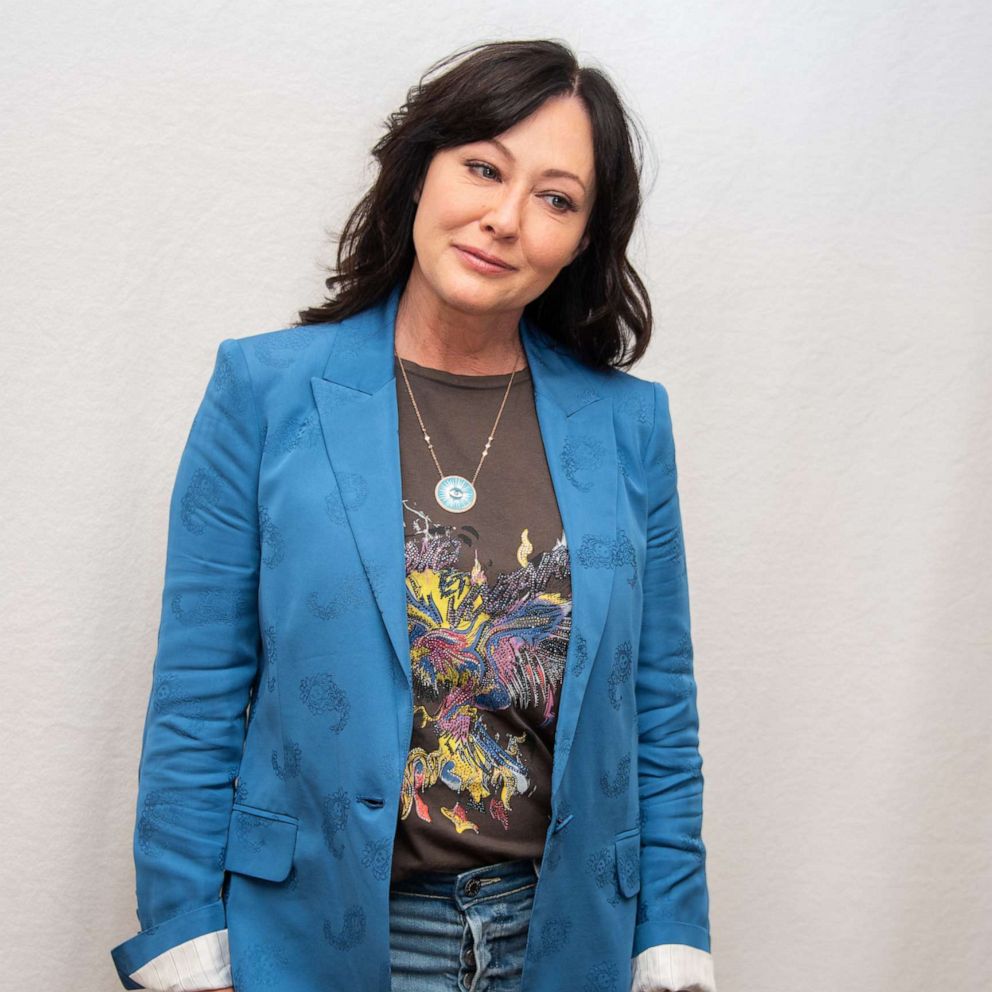Identical twin sisters battle duplicate breast cancer diagnoses
Meagan McCallum and Courtney Werner were diagnosed just months apart.
Meagan McCallum and Courtney Werner are 42-year-old identical twin sisters who are battling an identical breast cancer diagnosis.
McCallum, of New Jersey, was the first to be diagnosed after undergoing a mammogram last October.
While the mammogram came back clear, an ultrasound showed an abnormality, forcing McCallum to undergo a biopsy.

The biopsy showed McCallum had invasive ductal carcinoma, the most common type of breast cancer, found in 80% of diagnoses, according to BreastCancer.org, a "nonprofit organization dedicated to providing information and community to those touched by this disease," according to its website.
McCallum's twin sister was the first to get the news from McCallum's husband.
"I cried, right in the middle of work, cried," Werner, also of New Jersey, told "Good Morning America." "And then even when Meagan told me, [I] cried again, because it was even more real."
McCallum underwent a lumpectomy to remove the cancer. When she visited her sister in February, she showed Werner her surgery scars.

"When I showed her where the scars were, she went pale as a ghost, she went so white," said McCallum. "And I didn't know at the time that she found her own lump, and the reason she went white was because her lump was in the exact same spot."
Werner also underwent a mammogram that did not show any abnormalities. Her diagnosis of invasive ductal carcinoma, was found through an ultrasound and in the exact same spot as McCallum's cancer.
Werner, who was diagnosed in April, chose the same course of treatment as her sister. Both women are now doing well, and pleading for women to get tested for breast cancer.
"Early detection will save your life," said McCallum. "It absolutely will."
"Don't be afraid to go," added Werner.

As doctors continue their search for a cure for breast cancer, they are looking to twins like McCallum and Werner for answers.
Because identical twins are the result of a single egg that splits, they share the same DNA, which researchers are using to help answer questions about genetics and breast cancer.
One 2016 study found that if one identical twin develops breast cancer, there is a 28% chance the other twin will also develop it.
"One in eight women are going to develop breast cancer," said Dr. Yolanda Tammaro, a board-certified fellowship trained breast surgeon in New Jersey. "But women with a family history of breast cancer have an elevated risk."







